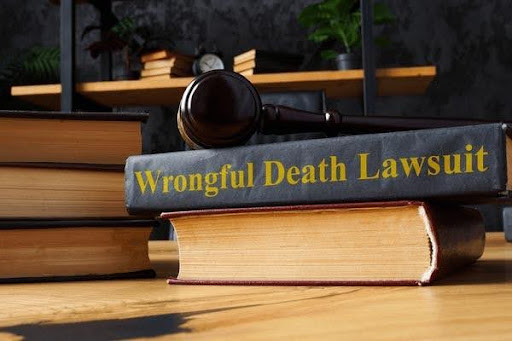When someone dies because of another person’s careless or reckless actions, the law allows their family to file what’s called a wrongful death claim. It’s a civil lawsuit where the victim’s family may get compensation. The goal is to help the family recover from the financial and emotional harm caused by the death. Wrongful death claims are usually filed after events like car crashes, medical mistakes, unsafe work conditions, faulty products, or violent acts.
Each state has its own rules about who can file a wrongful death claim and what damages can be claimed. Usually, it’s the spouse, children, or parents of the person who died. In some cases, if none of them step forward in time, the estate’s representative can file the claim.
If you’re dealing with this kind of loss, contact a lawyer. Lawyers can provide legal guidance for families pursuing wrongful death claims and make sure your rights and options are fully understood.
Economic Damages
Economic damages are about the money that was lost because the person died. The most common type of economic damage is the loss of financial support. This means the income that the person would have made if they had lived.
To figure this out, lawyers and courts usually look at the person’s age, salary, job type, education, and how many years they have left to work. They may also consider how their career would have progressed over time and adjust for inflation.
Next are medical expenses. If the person who died received medical treatment after the accident but before they passed away, the family can claim the cost of those treatments. This might include hospital bills, surgeries, medications, emergency services, and even therapy if the person lived for a while before dying.
Funeral and burial costs are also covered. The court usually looks at what is considered a reasonable amount for things like the casket, memorial services, cremation, or burial. These costs add up fast and are considered part of the financial damage.
Loss of benefits and inheritance are also included. This means things like health insurance the deceased provided, retirement contributions they would have made, or any inheritance they might have left behind if they had lived longer.
Non-Economic Damages: The Emotional Impact That’s Hard to Measure
Non-economic damages are different from financial ones. They deal with emotional pain and personal suffering caused by the death. These losses don’t have a price tag, but they are very real and often more painful than the financial losses.
One of the main non-economic damages is the loss of companionship and support. When a spouse, parent, or child dies, the family loses more than just money. They lose love, guidance, encouragement, and emotional comfort. These losses are considered just as important as income and are part of what the court tries to address.
There’s also the loss of parental guidance. If the person who died had young children, those children lose the advice, care, and emotional support that only a parent can give. The law recognizes this and allows compensation for that loss.
There is also a loss of consortium, which is the loss of a close relationship between spouses. This includes things like intimacy, emotional support, and affection. It applies mainly to married couples, but in some cases, it may also apply to long-term partners.
How Courts Estimate the Value of a Wrongful Death Case
To figure out how much compensation a family should get, courts and insurance companies look at a few key factors.
- Age and health of the deceased: A younger person with a long life ahead and no health problems would likely have provided more income and support over time, so the damages are usually higher.
- The income and future earning potential: Someone with a high-paying job and opportunities for career growth would have contributed more financially over the years, which increases the value of the claim.
- The relationship between the deceased and the person filing the claim: Immediate family members, like spouses and children, usually receive more compensation than distant relatives because they are more directly affected.
- The level of negligence or wrongdoing: Courts also consider the level of negligence or wrongdoing by the defendant. If the person or company was especially careless or acted with intent to harm, that can increase the amount of damages, especially if punitive damages are being considered.









